Datasheet
Year, pagecount:2014, 3 page(s)
Language:English
Downloads:3
Uploaded:September 22, 2017
Size:664 KB
Institution:
-
Comments:
Attachment:-
Download in PDF:Please log in!
Comments
No comments yet. You can be the first!Most popular documents in this category
Content extract
Source: http://www.doksinet Accounting and reporting by charities 19. Accounting for funds received as agent or as custodian trustee Introduction 19.1 Charities may agree to administer the funds of another entity as its agent As agent, a charity will act in line with the instructions of the entity that acts as the principal. For example, a charity may operate in an area of the world where the principal does not and so, by agreement with the principal, the charity administers the principal’s funds in accordance with the instructions received. Within the charity sector, agency arrangements are sometimes referred to as conduit funding because the charity, in acting as agent, provides a conduit through which funds are passed in order to fund activities or assist the beneficiaries of the principal. 19.2 The agent is usually bound by an agency agreement and distributes the funds it holds as agent to specified third parties in line with the instructions given by the principal. The funds
transferred to the agent remain under the control of the principal and the principal remains responsible for the charitable application of those funds. A charity acting as agent should ensure that the terms of the agency agreement and the use of the funds are consistent with its own purposes. 19.3 It is important to consider the substance of the arrangement over its legal form so as to distinguish between a charity acting as agent and a charity acting as principal: • As agent, the trustees of a charity have no discretion about the use to which the funds received are put. The charity acts only in accordance with the instructions or directions of the principal. • As principal, the trustees of a charity have discretion (subject to the purposes or terms on which the funds are held) as to how the funds are used. 19.4 A restricted donation is not an agency arrangement A charity accounts for the receipt of a restricted fund as principal because the charity’s trustees control how it
is subsequently spent. For example, even if the purposes of the gift were narrowly defined by the donor, the trustees of a grant-making charity would still retain discretion as to the selection of grant recipients and the timing of the payment. 19.5 Charities may also act as custodian trustee holding the title to property belonging to another charity on its behalf. Property held as custodian does not belong to the custodian trustee and so is not a component of the custodian trustee’s assets, income or expenditure in the reporting period. 19.6 This module sets out: • accounting for funds held as agent; • distinguishing consortia or similar arrangements involving a ‘lead’ charity; and • the disclosure of funds received as agent or held as custodian trustee. Source: http://www.doksinet Accounting and reporting by charities Accounting for funds held as agent 19.7 Funds received by a charity as agent are not recognised as an asset in its accounts because the funds are
not within its control. Consequently, the receipt of funds as agent is not recognised as income nor is its distribution recognised as the agent’s expenditure. 19.8 However, any fee receivable by a charity for acting as agent is recognised as its income. Similarly, any costs incurred by a charity in the administration of the agency arrangement are recognised as expenditure in its accounts. Distinguishing consortia or similar arrangements involving a ‘lead’ charity 19.9 Charities may also enter into a consortium or similar arrangement whereby two or more charities co-operate to achieve economies in the purchase or supply of goods or services for members of the arrangement or to a third party. The accounting for a consortium’s transactions requires an understanding of the substance of any underlying contractual arrangements. 19.10 Consortium arrangements can be set up through: • a formal joint venture arrangement (refer to the SORP module, ‘Branches, linked or connected
charities and joint arrangements’); • a joint venture entity (refer to the SORP module ‘Accounting for joint ventures’); • a charity acting as principal entering into contractual arrangements and then subcontracting with other parties or charities to deliver components of the contract (refer to the SORP module ‘Recognition of income, including legacies, grants and contract income’ and the examples of revenue recognition given in the appendix to section 23 of FRS 102); or • a lead charity acting as agent for the consortium’s members administering the contractual arrangements on behalf of all the members of the consortium. 19.11 When a lead charity acts as agent for members of a consortium, it may provide administrative support to the consortium arrangement, including invoicing and making payments on behalf of the consortium members. However, each charity participating in the consortium retains its own contractual obligations and rights despite the lead charity
being the main point of contact with the customer or being the commissioning body for a service. The lead charity is not acting as agent if it is the principal under the contract and is then subcontracting work to third parties, including other charities, in order to fulfill its contractual obligations. Disclosure of funds received as agent or held as custodian trustee 19.12 This SORP requires that a charity that has acted as agent during the reporting period must disclose in the notes to the accounts: • an analysis of funds received and paid by the charity as agent; • details of any balances held as agent at the reporting date; Source: http://www.doksinet Accounting and reporting by charities • details of any balances outstanding between any participating consortium members for which it is administratively responsible; and • where funds have been held as agent for related parties the charity must make the required disclosures for related parties required by the SORP
module ‘Disclosure of trustee and staff remuneration, related party and other transactions’. 19.13 This SORP requires that a charity that has acted as custodian trustee during the reporting period must disclose in the trustees’ annual report or as a note to the accounts: • a description of the assets, classes of assets or categories of assets which they hold in this capacity; • the name and objects of the charity (or charities) on whose behalf the assets are held and how this activity falls within the custodian charity’s objects; and • details of the arrangements for safe custody and segregation of such assets from the charity’s own assets
transferred to the agent remain under the control of the principal and the principal remains responsible for the charitable application of those funds. A charity acting as agent should ensure that the terms of the agency agreement and the use of the funds are consistent with its own purposes. 19.3 It is important to consider the substance of the arrangement over its legal form so as to distinguish between a charity acting as agent and a charity acting as principal: • As agent, the trustees of a charity have no discretion about the use to which the funds received are put. The charity acts only in accordance with the instructions or directions of the principal. • As principal, the trustees of a charity have discretion (subject to the purposes or terms on which the funds are held) as to how the funds are used. 19.4 A restricted donation is not an agency arrangement A charity accounts for the receipt of a restricted fund as principal because the charity’s trustees control how it
is subsequently spent. For example, even if the purposes of the gift were narrowly defined by the donor, the trustees of a grant-making charity would still retain discretion as to the selection of grant recipients and the timing of the payment. 19.5 Charities may also act as custodian trustee holding the title to property belonging to another charity on its behalf. Property held as custodian does not belong to the custodian trustee and so is not a component of the custodian trustee’s assets, income or expenditure in the reporting period. 19.6 This module sets out: • accounting for funds held as agent; • distinguishing consortia or similar arrangements involving a ‘lead’ charity; and • the disclosure of funds received as agent or held as custodian trustee. Source: http://www.doksinet Accounting and reporting by charities Accounting for funds held as agent 19.7 Funds received by a charity as agent are not recognised as an asset in its accounts because the funds are
not within its control. Consequently, the receipt of funds as agent is not recognised as income nor is its distribution recognised as the agent’s expenditure. 19.8 However, any fee receivable by a charity for acting as agent is recognised as its income. Similarly, any costs incurred by a charity in the administration of the agency arrangement are recognised as expenditure in its accounts. Distinguishing consortia or similar arrangements involving a ‘lead’ charity 19.9 Charities may also enter into a consortium or similar arrangement whereby two or more charities co-operate to achieve economies in the purchase or supply of goods or services for members of the arrangement or to a third party. The accounting for a consortium’s transactions requires an understanding of the substance of any underlying contractual arrangements. 19.10 Consortium arrangements can be set up through: • a formal joint venture arrangement (refer to the SORP module, ‘Branches, linked or connected
charities and joint arrangements’); • a joint venture entity (refer to the SORP module ‘Accounting for joint ventures’); • a charity acting as principal entering into contractual arrangements and then subcontracting with other parties or charities to deliver components of the contract (refer to the SORP module ‘Recognition of income, including legacies, grants and contract income’ and the examples of revenue recognition given in the appendix to section 23 of FRS 102); or • a lead charity acting as agent for the consortium’s members administering the contractual arrangements on behalf of all the members of the consortium. 19.11 When a lead charity acts as agent for members of a consortium, it may provide administrative support to the consortium arrangement, including invoicing and making payments on behalf of the consortium members. However, each charity participating in the consortium retains its own contractual obligations and rights despite the lead charity
being the main point of contact with the customer or being the commissioning body for a service. The lead charity is not acting as agent if it is the principal under the contract and is then subcontracting work to third parties, including other charities, in order to fulfill its contractual obligations. Disclosure of funds received as agent or held as custodian trustee 19.12 This SORP requires that a charity that has acted as agent during the reporting period must disclose in the notes to the accounts: • an analysis of funds received and paid by the charity as agent; • details of any balances held as agent at the reporting date; Source: http://www.doksinet Accounting and reporting by charities • details of any balances outstanding between any participating consortium members for which it is administratively responsible; and • where funds have been held as agent for related parties the charity must make the required disclosures for related parties required by the SORP
module ‘Disclosure of trustee and staff remuneration, related party and other transactions’. 19.13 This SORP requires that a charity that has acted as custodian trustee during the reporting period must disclose in the trustees’ annual report or as a note to the accounts: • a description of the assets, classes of assets or categories of assets which they hold in this capacity; • the name and objects of the charity (or charities) on whose behalf the assets are held and how this activity falls within the custodian charity’s objects; and • details of the arrangements for safe custody and segregation of such assets from the charity’s own assets
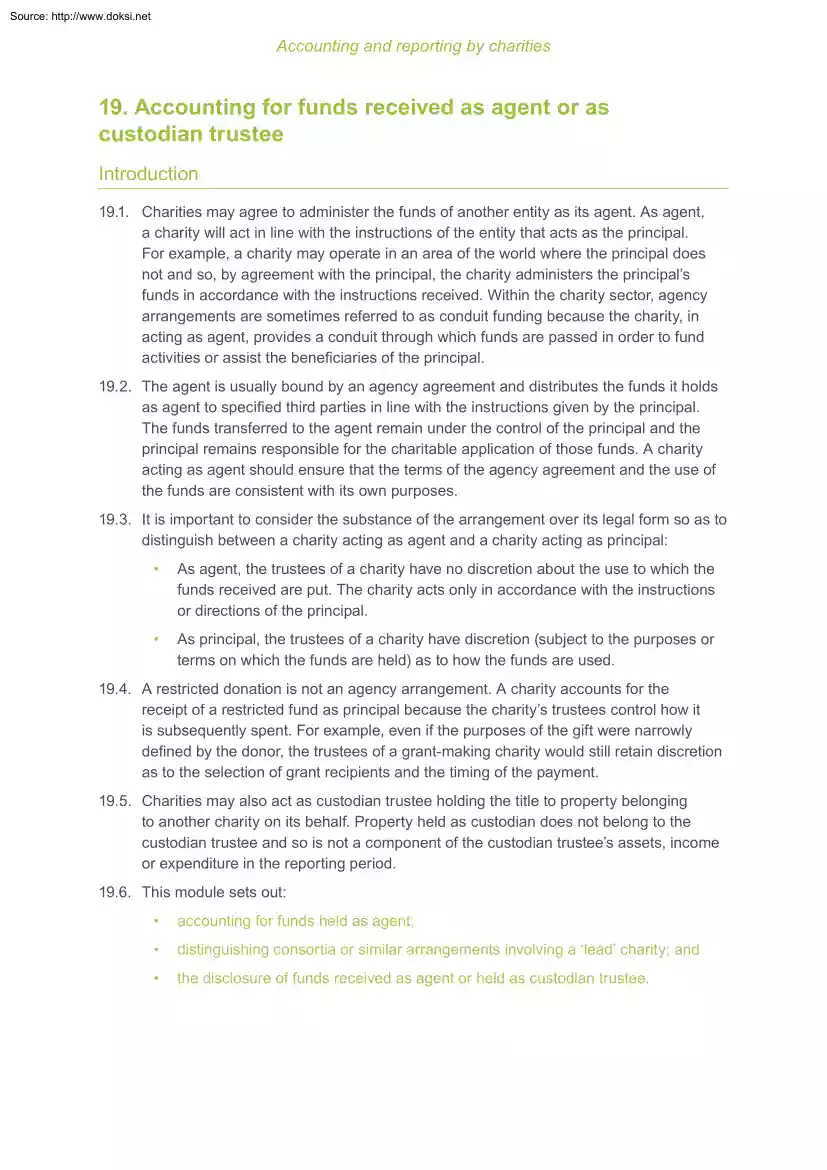
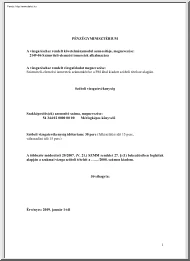
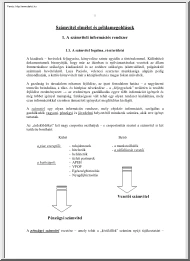
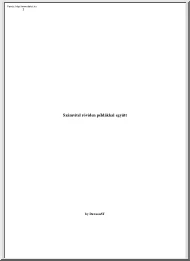
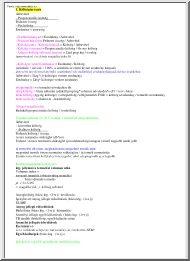
 Just like you draw up a plan when you’re going to war, building a house, or even going on vacation, you need to draw up a plan for your business. This tutorial will help you to clearly see where you are and make it possible to understand where you’re going.
Just like you draw up a plan when you’re going to war, building a house, or even going on vacation, you need to draw up a plan for your business. This tutorial will help you to clearly see where you are and make it possible to understand where you’re going.